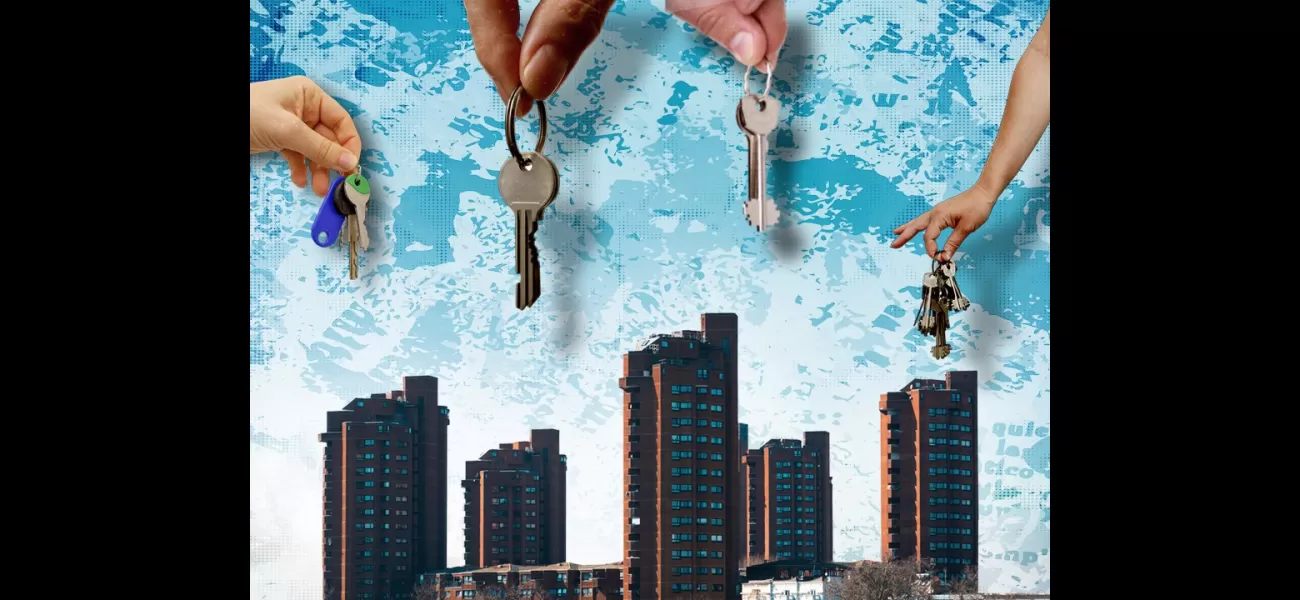Homeowners in the UK, take note. This is the impact of the Leasehold Reform Bill on you.
Major updates on the horizon.
July 24th 2024.

Last week, as Labour made their inaugural King's Speech, they revealed their plans for significant changes in the leasehold system. This has caused quite a buzz as people discuss the party's housing policies. While wearing the Imperial Crown, King Charles addressed the State Opening of Parliament and promised to protect renters and put an end to no-fault evictions. This move was applauded by homelessness charity Shelter, who called it a 'once-in-a-generation opportunity.'
One particular aspect of the King's Speech has caught the attention of many – Labour's stance on the Leasehold Reform Act and what it could mean for homeowners who are under these types of contracts. So, what exactly could this act look like in practice and when can we expect to see its impact? The Agency spoke to experts to find out.
For those who may need a refresher, leasehold agreements are common in flats and shared ownership schemes. This means that homeowners do not own the land their property sits on entirely and have to make additional rental payments to the freeholder who does. According to the Greater London Authority, freeholders have complete control over the land and any buildings on it, allowing them to rent out the property for short or long periods of time. While it may seem complicated, there are legal agreements in place to outline responsibilities, charges for property maintenance, and time limits for ownership. However, the Leasehold Reform Act aims to make life easier for leaseholders in the future.
Although the Leasehold and Freehold Reform Act of 2024 was passed earlier this year by the previous Conservative Government, most of its legislation has not yet taken effect. In addition to moving forward with this act, Labour has promised to quickly extend its protections with a new Leasehold and Commonhold Bill. According to Emma Hardman, a partner and housing management specialist at law firm Anthony Collins, the Act has brought significant benefits. These include making it easier for leaseholders to extend their leases, standardizing information that landlords must provide about service charges, and extending the rights of freeholders who pay estate rent charges.
So, how exactly could this act help homeowners? According to Pete Mugleston, Managing Director and property expert at Online Mortgage Advisor, the goal is to simplify and reduce the cost of extending leases or purchasing freeholds. This includes increasing the standard lease extension term to 990 years for both houses and flats. The act also aims to improve transparency around service charges and introduce measures to help leaseholders challenge unreasonable costs set by owners. Additionally, Emma notes that it will cap ground rents, safeguard leaseholders against losing their homes, and make commonhold the default tenure.
The King's Speech also included other important measures, such as establishing a state-owned energy production firm, creating a national wealth fund, and placing water companies into 'special measures' to clean up the environment. It also includes the sale of new leasehold houses being banned, meaning that every new house built in England and Wales will be freehold from the beginning of the contract. Notably, the Bill will give leaseholders the legal right to buy out the ground rent without extending the lease simultaneously. It will also eliminate the requirement for new leaseholders to have owned their home for two years before being eligible to extend the lease or buy the freehold.
When can we expect to see these changes take effect? According to Emma, as the Leasehold and Commonhold Bill was included in the King's Speech, it should become law this Parliamentary year. It is also likely that the outstanding provisions of the Act will be implemented at the same time. However, some details may need to be outlined in regulations, as with the Act. This Bill is a significant change in how flats will be sold in the future, so it is a big development. However, as Pete points out, only minor amendments to the Building Safety Act are expected to take effect this week, on July 24th. This includes provisions for repossessing properties if rent charge payments are missed. So, it is possible that homeowners may not see the full benefits of these changes until 2025 or later.
Do you have a story to share? We would love to hear from you. Get in touch by emailing us at email.
One particular aspect of the King's Speech has caught the attention of many – Labour's stance on the Leasehold Reform Act and what it could mean for homeowners who are under these types of contracts. So, what exactly could this act look like in practice and when can we expect to see its impact? The Agency spoke to experts to find out.
For those who may need a refresher, leasehold agreements are common in flats and shared ownership schemes. This means that homeowners do not own the land their property sits on entirely and have to make additional rental payments to the freeholder who does. According to the Greater London Authority, freeholders have complete control over the land and any buildings on it, allowing them to rent out the property for short or long periods of time. While it may seem complicated, there are legal agreements in place to outline responsibilities, charges for property maintenance, and time limits for ownership. However, the Leasehold Reform Act aims to make life easier for leaseholders in the future.
Although the Leasehold and Freehold Reform Act of 2024 was passed earlier this year by the previous Conservative Government, most of its legislation has not yet taken effect. In addition to moving forward with this act, Labour has promised to quickly extend its protections with a new Leasehold and Commonhold Bill. According to Emma Hardman, a partner and housing management specialist at law firm Anthony Collins, the Act has brought significant benefits. These include making it easier for leaseholders to extend their leases, standardizing information that landlords must provide about service charges, and extending the rights of freeholders who pay estate rent charges.
So, how exactly could this act help homeowners? According to Pete Mugleston, Managing Director and property expert at Online Mortgage Advisor, the goal is to simplify and reduce the cost of extending leases or purchasing freeholds. This includes increasing the standard lease extension term to 990 years for both houses and flats. The act also aims to improve transparency around service charges and introduce measures to help leaseholders challenge unreasonable costs set by owners. Additionally, Emma notes that it will cap ground rents, safeguard leaseholders against losing their homes, and make commonhold the default tenure.
The King's Speech also included other important measures, such as establishing a state-owned energy production firm, creating a national wealth fund, and placing water companies into 'special measures' to clean up the environment. It also includes the sale of new leasehold houses being banned, meaning that every new house built in England and Wales will be freehold from the beginning of the contract. Notably, the Bill will give leaseholders the legal right to buy out the ground rent without extending the lease simultaneously. It will also eliminate the requirement for new leaseholders to have owned their home for two years before being eligible to extend the lease or buy the freehold.
When can we expect to see these changes take effect? According to Emma, as the Leasehold and Commonhold Bill was included in the King's Speech, it should become law this Parliamentary year. It is also likely that the outstanding provisions of the Act will be implemented at the same time. However, some details may need to be outlined in regulations, as with the Act. This Bill is a significant change in how flats will be sold in the future, so it is a big development. However, as Pete points out, only minor amendments to the Building Safety Act are expected to take effect this week, on July 24th. This includes provisions for repossessing properties if rent charge payments are missed. So, it is possible that homeowners may not see the full benefits of these changes until 2025 or later.
Do you have a story to share? We would love to hear from you. Get in touch by emailing us at email.
[This article has been trending online recently and has been generated with AI. Your feed is customized.]
[Generative AI is experimental.]
0
0
Submit Comment





